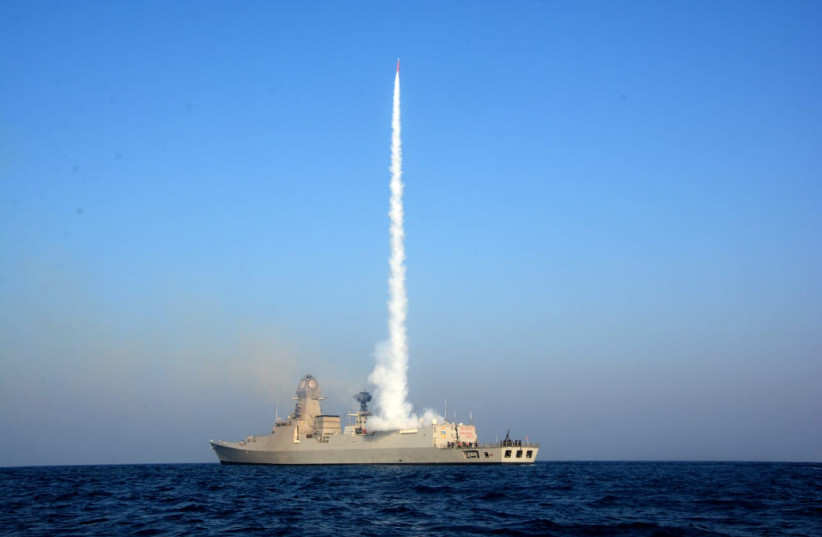Satellite images taken over the United Arab Emirates show at least two Israeli Barak air defense systems being deployed to defend against a range of aerial threats launched by Iran.
According to satellite images released by Tactical Report, which covers events in the Gulf States and Middle East, the batteries and an Elta EL/M-2084 radar have been deployed near al-Dhafra airbase near Abu Dhabi.
First reported by Breaking Defense, the batteries are the first of what could be a substantial contract for additional systems to protect sensitive sites that have been targeted by missiles and drones launched by Houthi rebels in Yemen.
Part of a Saudi-led military campaign against the Iran-backed Houthi rebels, the UAE has seen several missile and drone attacks carried out by the rebels in recent months.
Israel has offered support to the UAE against such attacks. Following a missile and drone attack that killed three people in Abu Dhabi last year, former prime minister Naftali Bennett said that he “ordered the Israeli security establishment to provide their counterparts in the UAE with any assistance” that could help to protect against future attacks.

In April, at least 10 C-17 Globemaster heavy transport aircraft belonging to the United Arab Emirates Air Force landed in southern Israel at the Israel Air Force’s Nevatim Airbase over a span of two weeks. They all took off about an hour after landing.
The Boeing C-17A Globemaster III is a four-engine heavy transport aircraft that can accommodate a huge payload of about 85 tons (77,000 kg.).
What is the Barak missile defense system?
The Barak missile defense system is jointly developed by India’s Defence Research and Development Organisation (DRDO) in close collaboration with Israel Aircraft Industry's Elta division, Rafael and additional companies in both countries.
Originally developed to be a ship-borne system, it now has several versions including those that can be used by ground forces. It is unclear which system has been deployed.
The Barak Extended Range (ER) has a range of 150 km. and can reach an altitude of 30 km. The all-weather system can launch eight missiles from one launcher in single or ripple firing modes and can engage multiple targets simultaneously, such as fighter jets, sea-skimming and cruise missiles, UAVs, helicopters and gliding bombs.
The system integrates several advanced state-of-the-art systems including a digital radar, command and control, tracking radar launchers, interceptors with advanced homing radio frequency (RF) seekers, data link and system-wide connectivity.
Barak ER is in use by Israel’s navy as well as by India’s naval, air and ground forces. Israel has also sold the system to Azerbaijan and Morocco.
Fighting the Iranian threat together
Both Israel and the UAE have worked together covertly for years against Iran’s hegemony and, according to foreign reports, have behind closed doors improved their intelligence-sharing and military relations in order to be prepared for Iranian threats.
Even prior to the normalization of ties with Gulf countries, Israel started talking about a regional air defense program to protect it from threats like Iranian drones and missiles. Once the ties were formalized with the signing of the Abraham Accords in 2020, Israeli officials began openly talking about a Middle East Air Defense system.
According to Defense Minister Benny Gantz, it is already operational and has successfully intercepted aerial threats.
The alliance has reportedly brought together Israel and Arab states in the Middle East around a shared table in order to defend their countries from Iran and its proxies who have increased their attacks, some of them deadly, in recent years.
